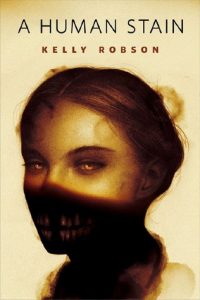
Our topic at the SFF Seven this week is, appropriately enough, our favorite horror or scary book. Come on over for my two.
RITA ® Award-Winning Author of Fantasy Romance
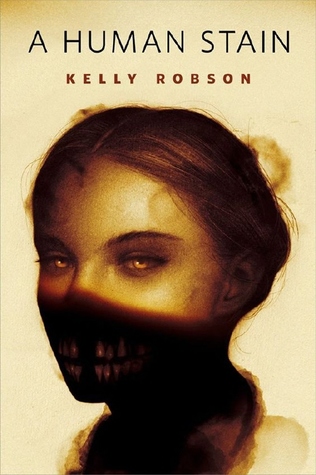

Our topic at the SFF Seven this week is, appropriately enough, our favorite horror or scary book. Come on over for my two.


I had some confusion today, so the podcast is in two parts… >_>
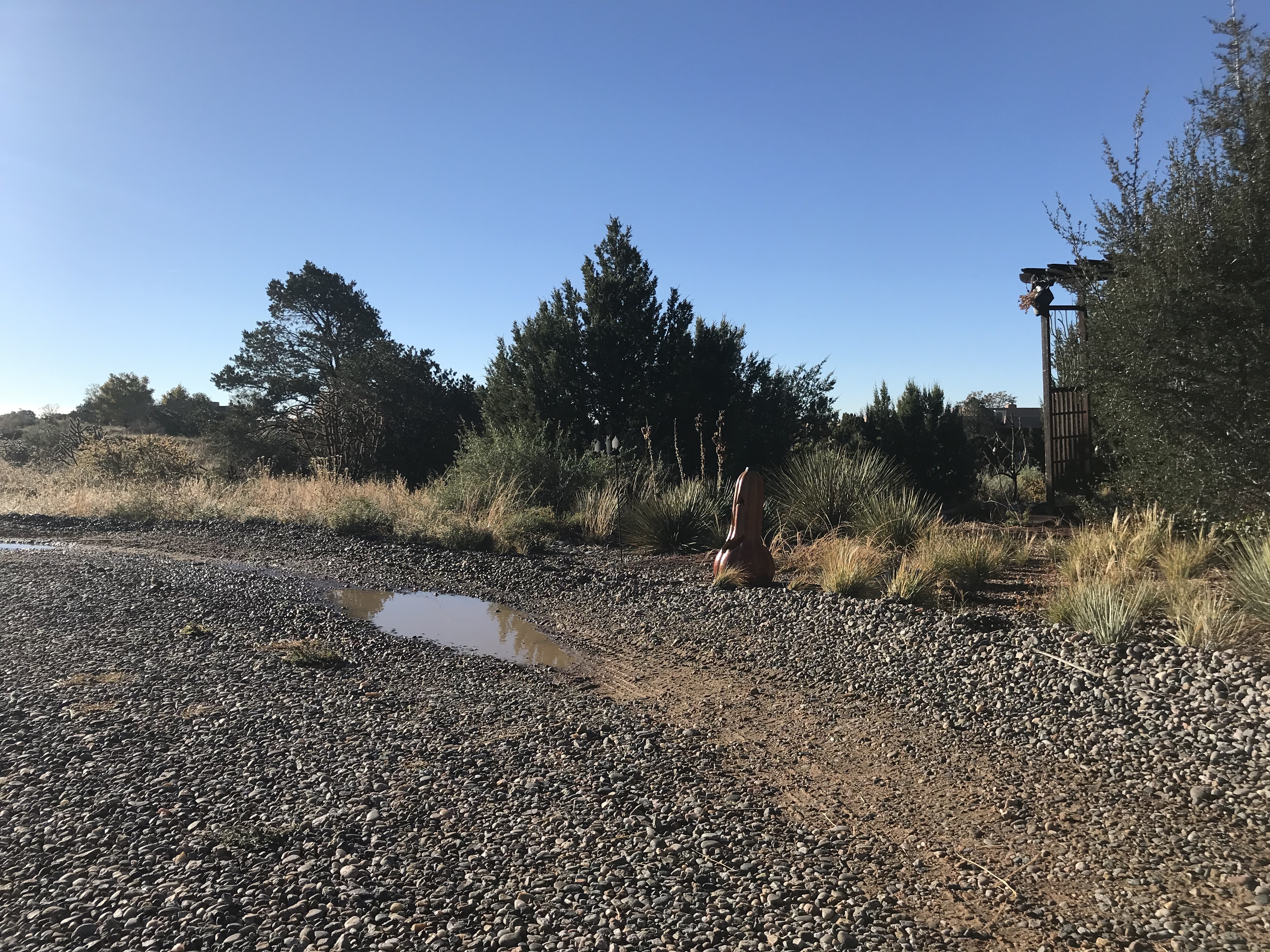
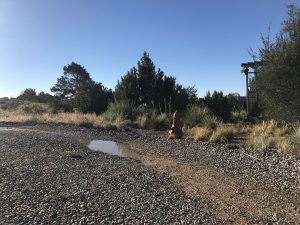
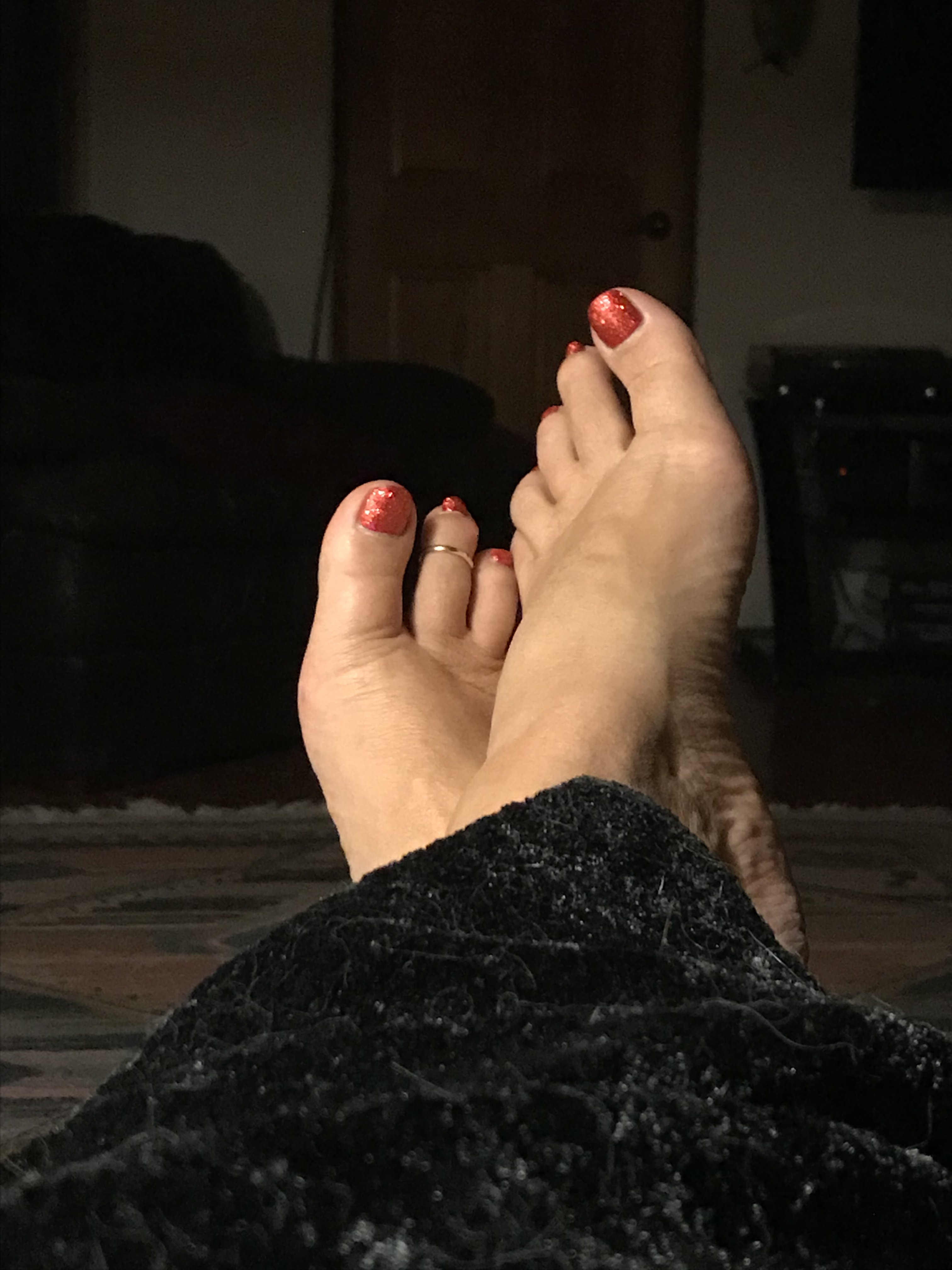
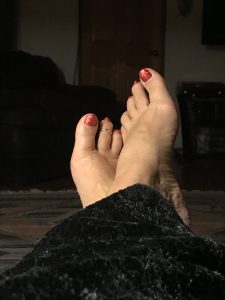
These rainy days and chilly evenings have made for a cozy autumn. So lovely to build a fire, put on a warm robe, and read by the fireplace.
I sometimes get questions from readers – for the most part through my website contact form, Goodreads, Facebook, or Twitter – and usually I answers those questions where they’re asked. The other day, however, I received an email via the website contact form, with enough questions and enthusiastic thoughts, that I asked for permission to share it here. Pretty much the fun version of asking the question so the whole class can hear, because other people probably have the same question. 😉
Here’s the email from Ellen: (I added the handy links)
Hello! First of all I have to say that I’m a huge fan! I recently discovered you through another favorite author of mine, Grace Draven. I started with “The Mark of The Tala” and then literally binge read every book in your entire 12 kingdoms universe in a matter of weeks. I absolutely loved how you tied in all the stories and I’m so excited to see what happens next, especially with war on the brink! That being said I do have a few questions I was wondering if you can answer (if not I totally understand!)
I always try to answer questions! Plus, I love to hear what readers love and what snags their curiosity. So here are some answers!
1) many of your Dasnarian characters use the term “cvan”, however I can’t find a definition for the word anywhere in your books. What does it mean? (On a side note it might be cool if future books had a glossary of terms. Just an idea! )
That’s a great idea to include a glossary of terms and Assistant Carien is on it! I don’t always define terms in my books unless I can find a way to make it a natural part of conversation. “Cvan” is a Dasnarian word that I made up, working off Old Norse – which is the springboard for all of my Dasnarian language – and means essentially “my lover.” Because that’s meant in a very sexual sense, there’s rarely opportunity to work into conversation a discussion of the term!
2) I understand both of Ami’s twins can shift, due to the barrier expanding, but what does it mean that only Stella has the “mark”? Before I thought the mark meant that she had enough magic to shift, so now I’m just a bit confused as to what the mark means. Is it in reference to her magical gifts? Like Andi with the foresight and Stella with emotions?
Aha! This is still somewhat mysterious and will not be explained until the final book. There are lots of guesses out there, and it’s nothing that people probably haven’t already intuited, but it’s not surprising that you’re confused since I’ve never come right out and explained. You’re on the right track – that it has to do with the magical gifts.
3) Will we ever find out the significance of Salena’s sea shells and the connection of them with Rayfe’s mother?
It’s funny, Carien had to go look for this for me, to remind me of the reference. For those wondering, the scene Ellen references comes at the end of THE MARK OF THE TALA, in the vision Andi experiences. Really there’s not much significance to this. Andi tells Rayfe’s mother, Garland, about the seashell because it’s part of showing that it truly was a message from Salena – something only Salena and Garland knew about. It was simply a memento of their friendship.
4) I can’t wait for “Seasons of Sorcery,” after that will there be any more “Uncharted Realms” releases? I’m so curious to see what future POV characters will take the main stage!
Right now I’m planning one more book in The Uncharted Realms series, which will tie up all the current threads and reveal some answers to questions posed back at the beginning of The Twelve Kingdoms. I haven’t publicly announced this anywhere yet (I think) because I was still noodling it, but that book will be called THE FATE OF THE TALA, and if all goes well, it will be out in May of 2019.
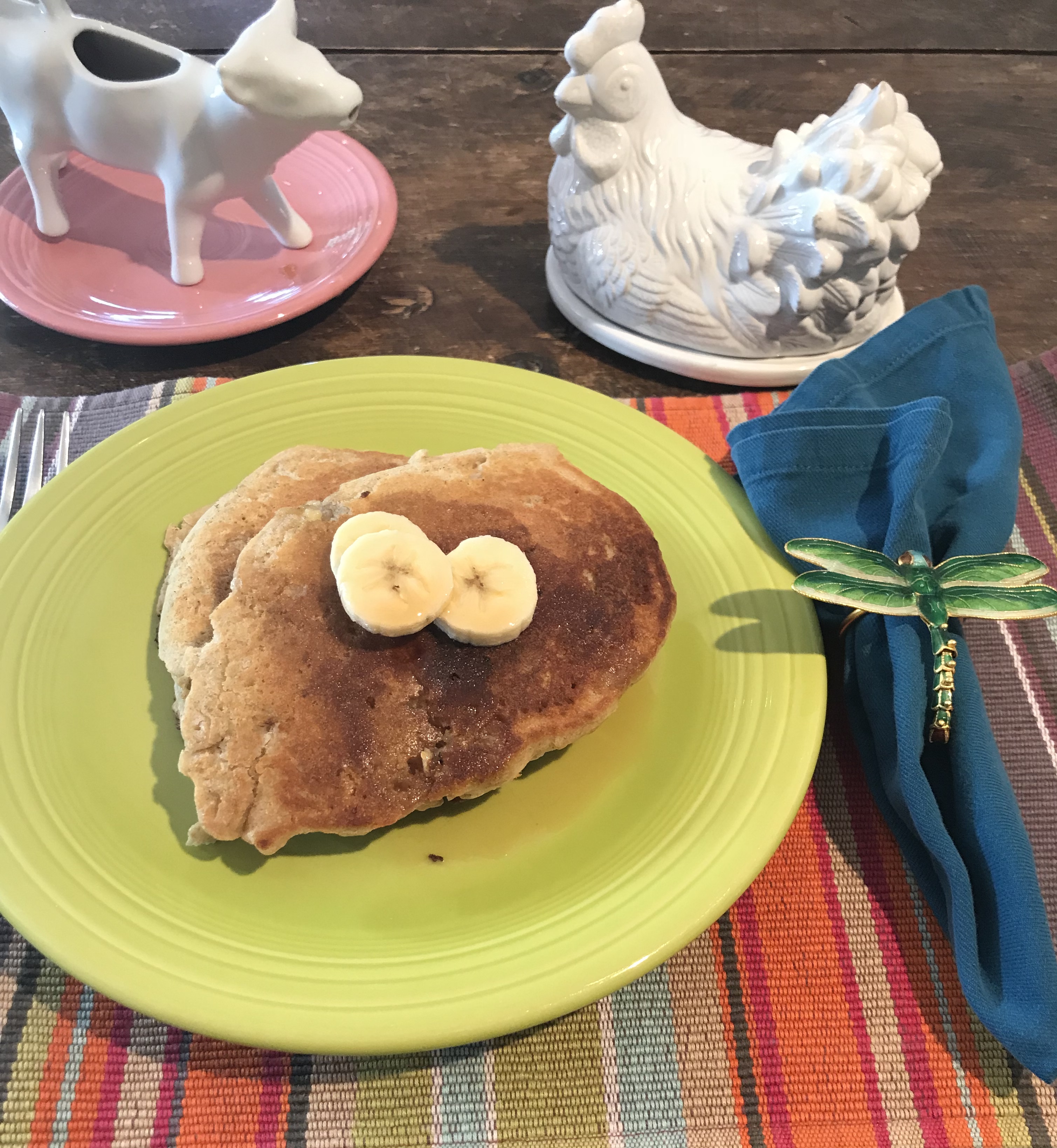
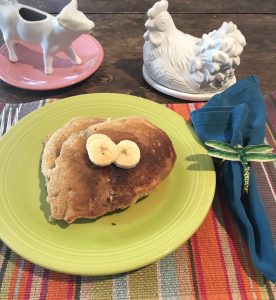
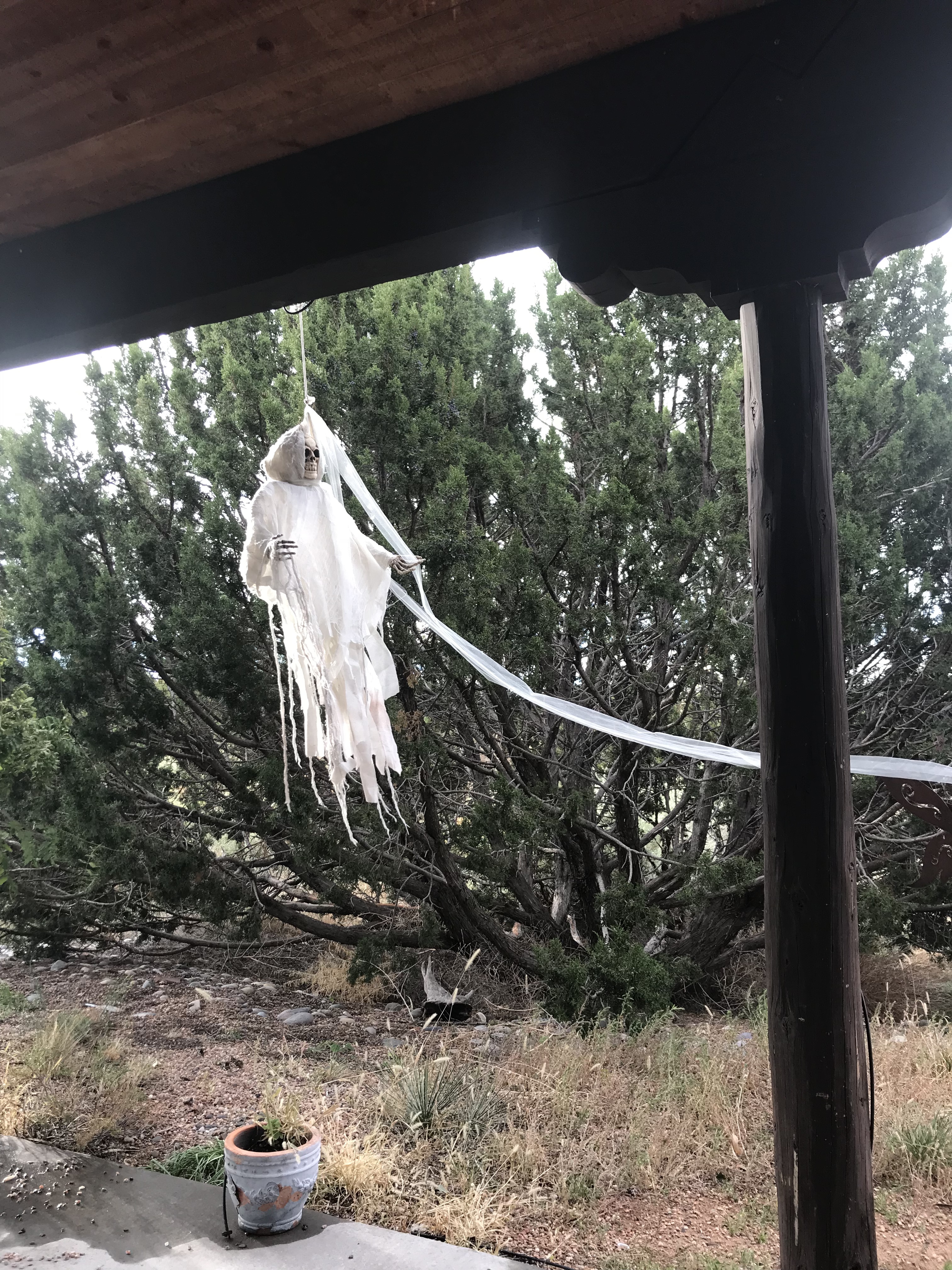
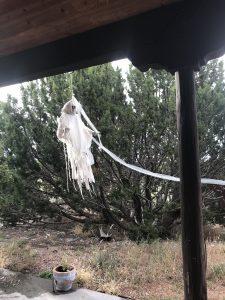
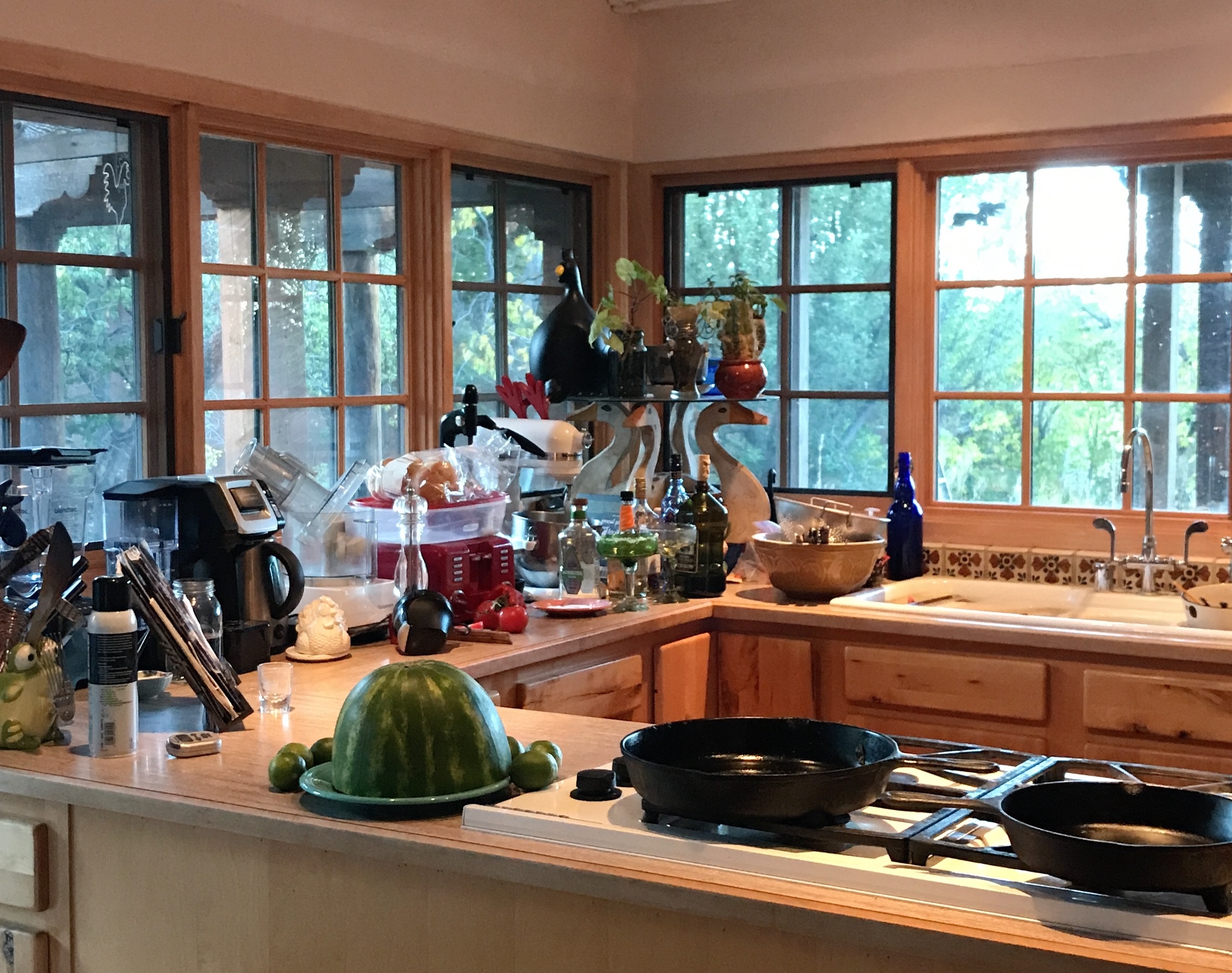

Minerva Spencer’s kitchen in Taos – isn’t it gorgeous? I’m up here visiting for the weekend and she wants me to tell you it’s normally much tidier than this but we’ve been having an eating, drinking, talking writer’s bacchanalia.
Our topic this week at the SFF Seven, to continue the contentious cycle of last week’s one vs. two spaces throw-down, is: First Person POV vs. Third – or Second – Which Do You Like to Read? Come on over for definitions, and my answer!
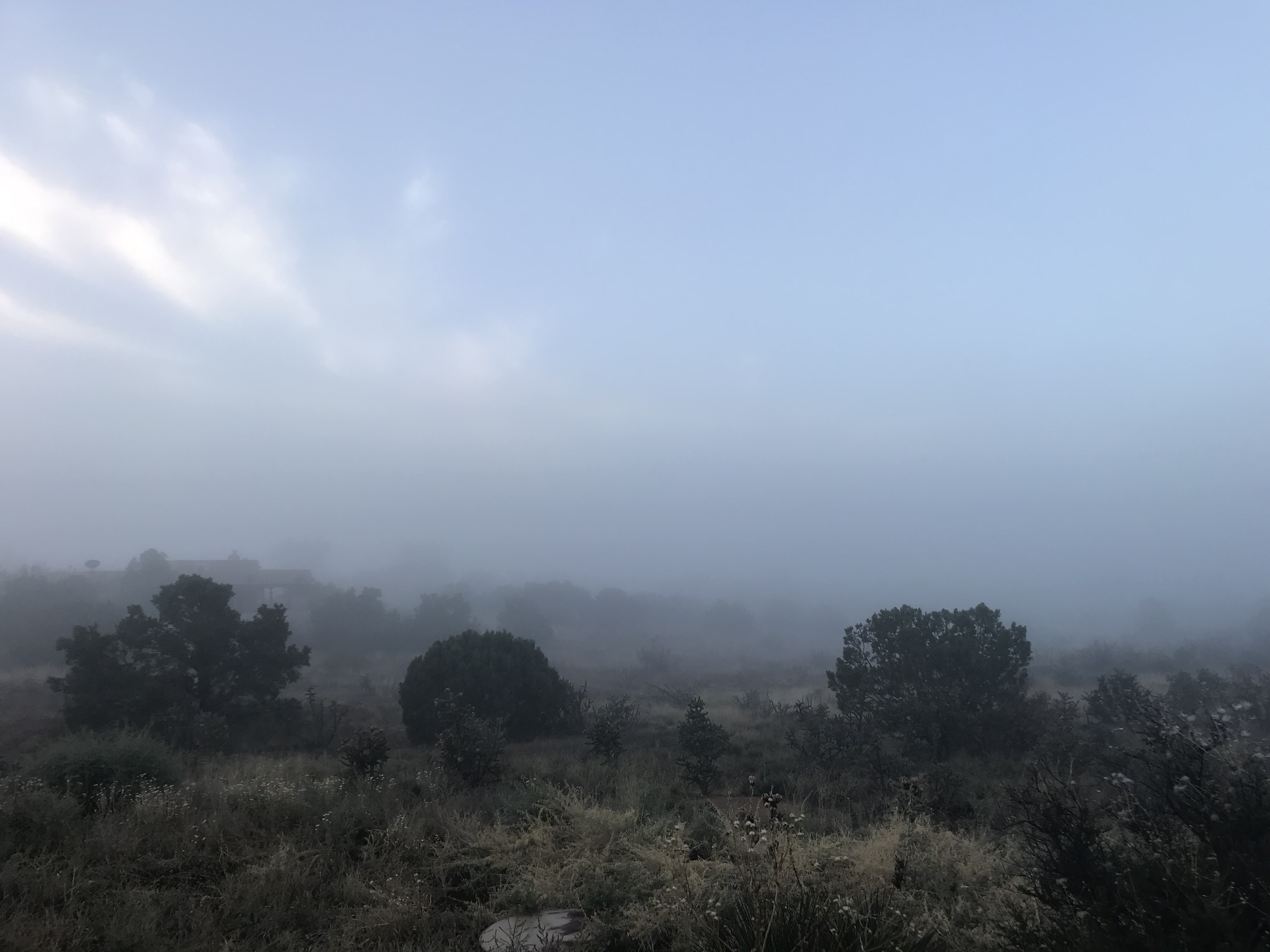
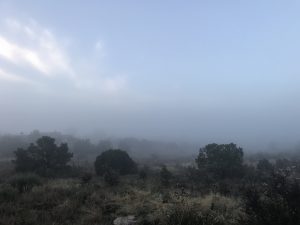
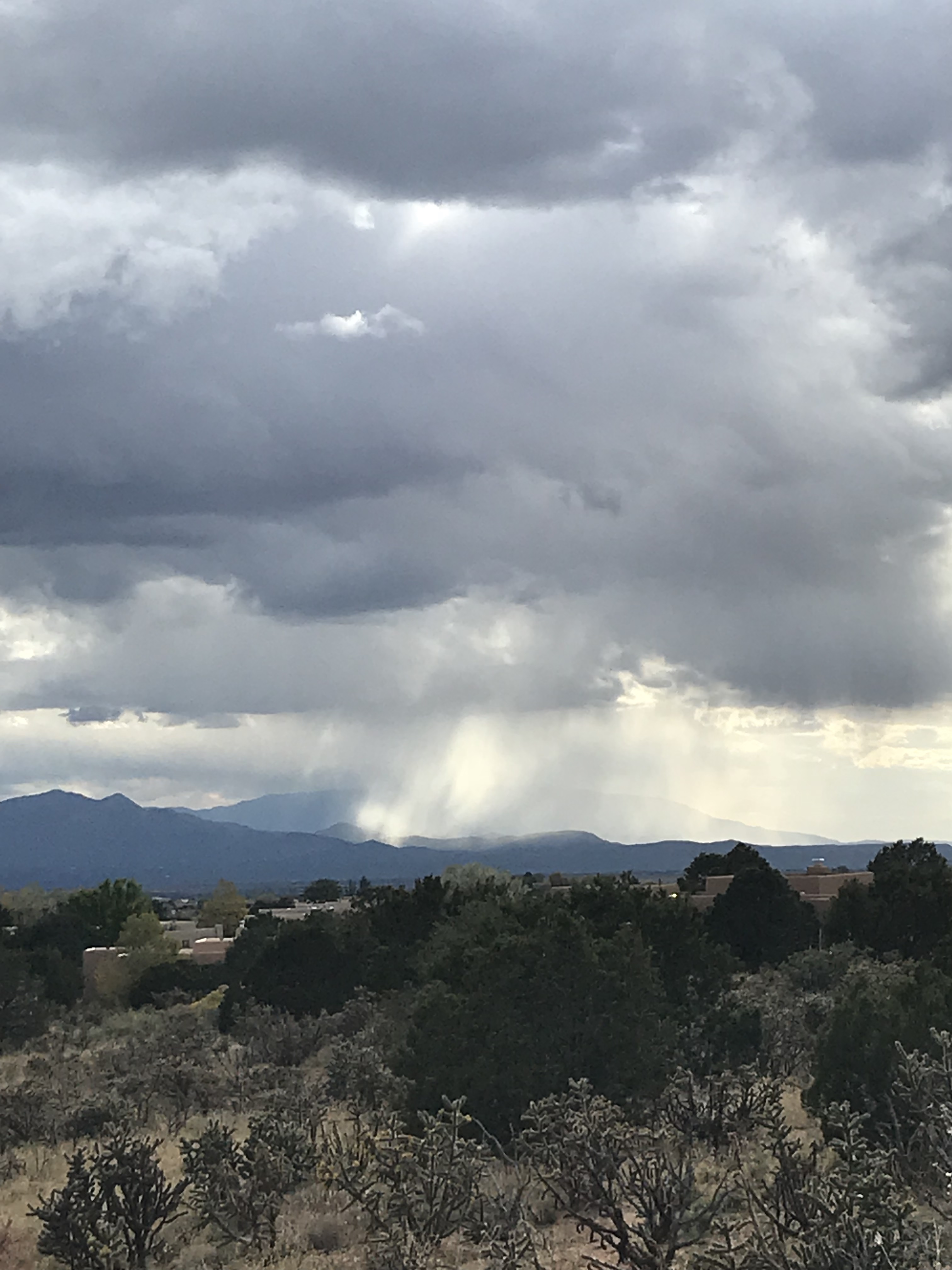
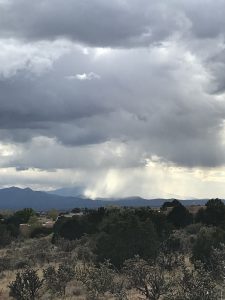
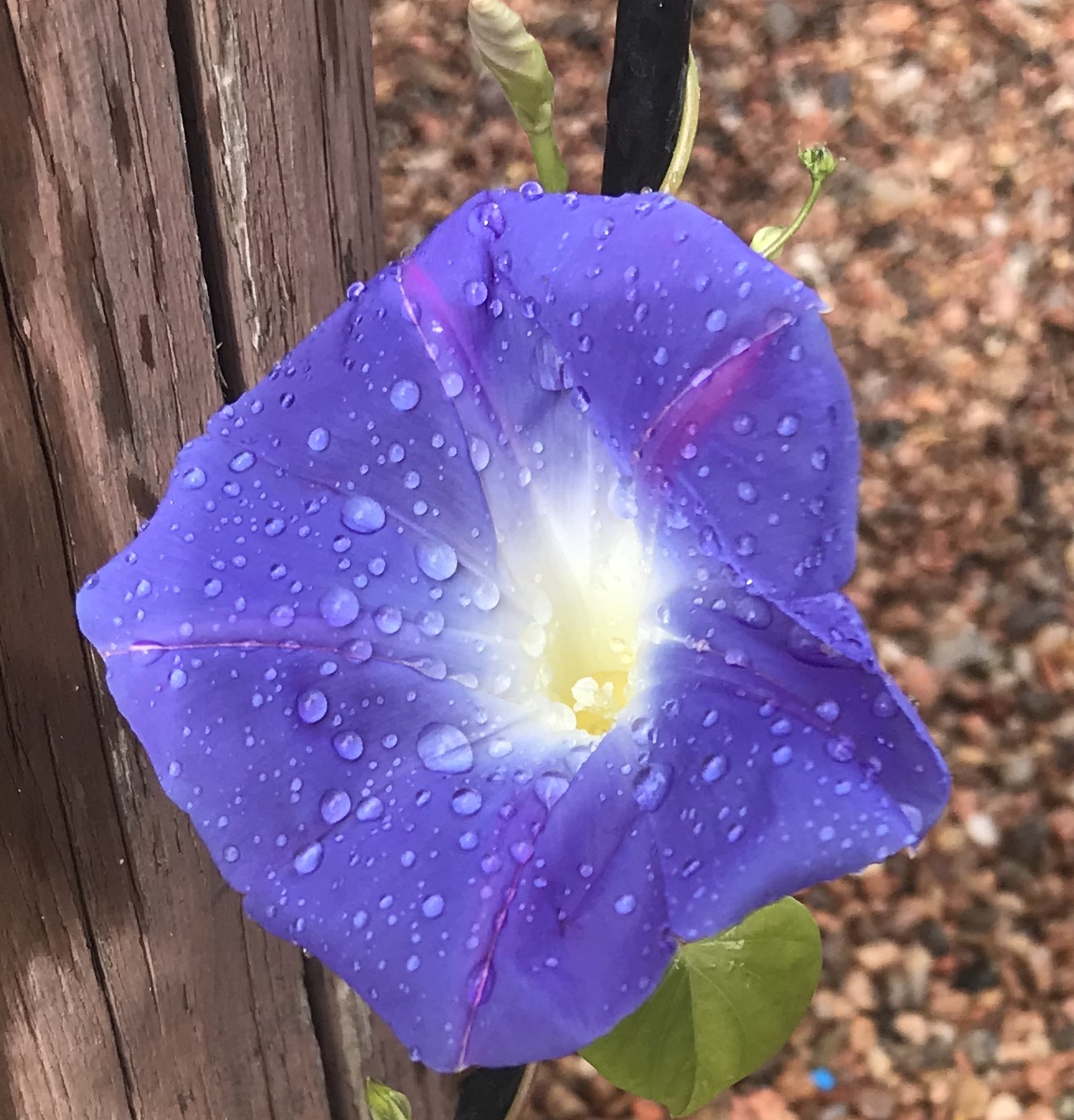
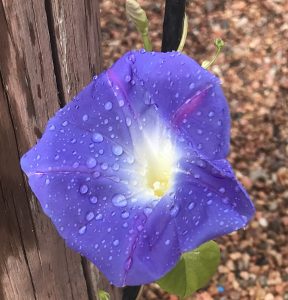
This slightly sodden morning glory was the last before the freeze, so I had to take a pic. Until next season, tender flowers!
So, last week I was at the nail salon. I go every-other week and see Ruby, who is a Mani/Pedi Goddess. I’ve been seeing her for two years now, so we know each other fairly well. She was asking me about Halloween and my plans – and I said I had Costume Pressure this year. I’ve been invited to a Big Shindig, hosted by George R.R. Martin’s assistant. Lots of Science Fiction and Fantasy types will be there.
Ruby asked if I didn’t have costume ideas, and I said sure, I could put something together, but I don’t really do Cosplay the way a lot of these people will be. A client of one of the other gals, overhearing, turns to me and says:
“Just go as one of George R.R. Martin’s characters. From what I’ve seen, all you’d have to do is roll around in the dirt!” And she cackles at her wit.
“I doubt George would find the humor in that,” I say, imagining the scene where I, a greatly junior author, turn up in dirt-covered rags and cheerfully announced to George that I’m Arya Stark. No no no.
Other Lady: Oh no – I’ve met George R.R. Martin and he has a *great* sense of humor!
Me: Yes, he does, but not so much about Game of Thrones.
Other Lady: That’s not true! When I met him at a party, my daughter wanted me to ask him to stop killing off his characters. So, since it was important to her, I did. I marched right up to him and I said “my daughter wants me to ask you to stop killing off his characters.” And he laughed!
Me: ~cringes in chair~
Other Lady: And do you know what he said? He said, “Tell her not to worry because I’ve got plenty more where those came from.” Isn’t that just too funny??
Me: ~nods politely~
Other Lady: So see – he *does* have a sense of humor about Game of Thrones. So you should just go covered in dirt, say you’re one of his characters, and he’ll think it’s funny.
Me: I’ll keep that in mind.
***
It occurred to me to share this story, because I get asked a lot about Dos and Don’ts when meeting favorite authors. Is it okay to ask them to sign a book? Will they get mad if I ask when the sequel is coming? That sort of thing.
My usual advice is that most authors LOVE to meet readers and are happy to sign books and talk about them. I really love to hear which characters or stories are favorites and why. And sure, authors hear a lot of the same questions, but that’s generally okay. We also have standard answers for them. Good on George for being able to laugh as he delivered his standard answer to something he hears All The Freaking Time.
It totally amazed me that this lady could be so tone deaf that she had no sense of that – or how her dismissal of his characters as all covered in dirt wouldn’t be insulting.
So, how do you talk to authors at parties – or anywhere, really? Like you talk to any human being. With kindness and consideration.
*with apologies to Neil Gaiman’s “How to Talk to Girls at Parties”